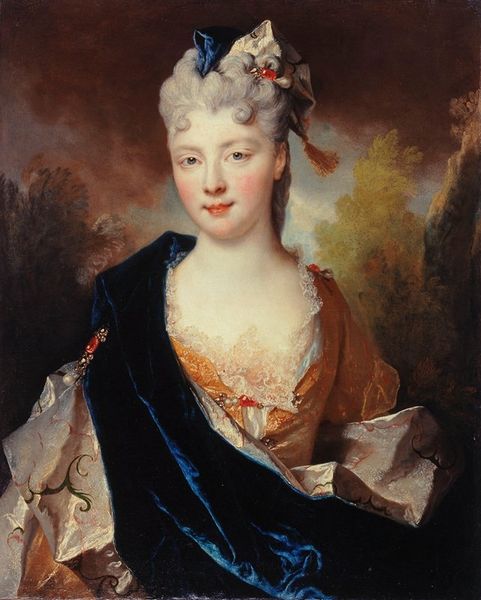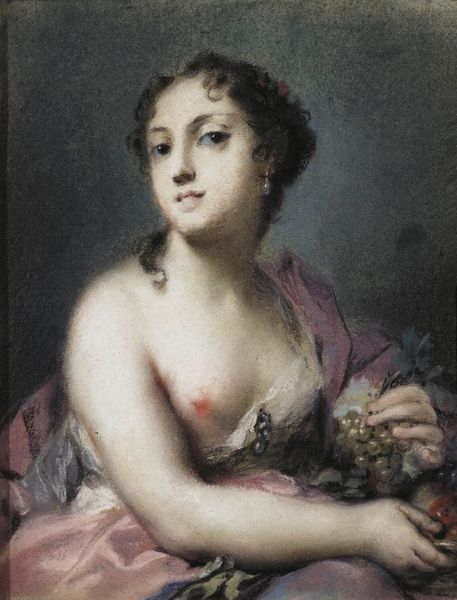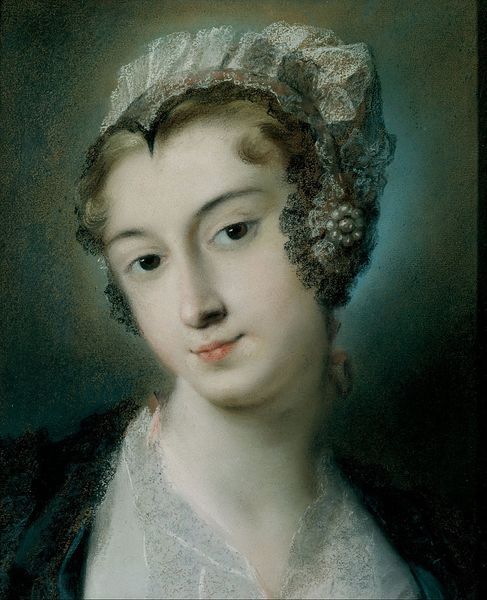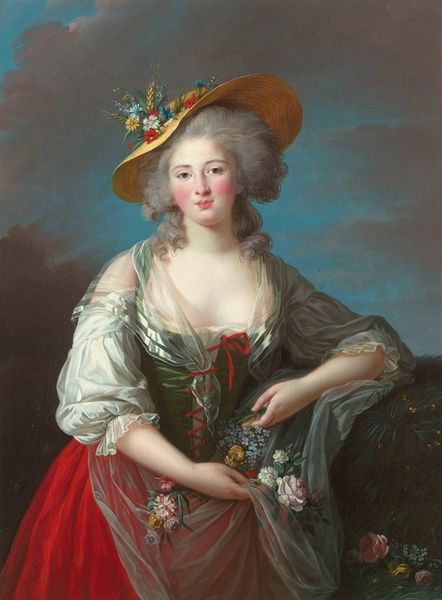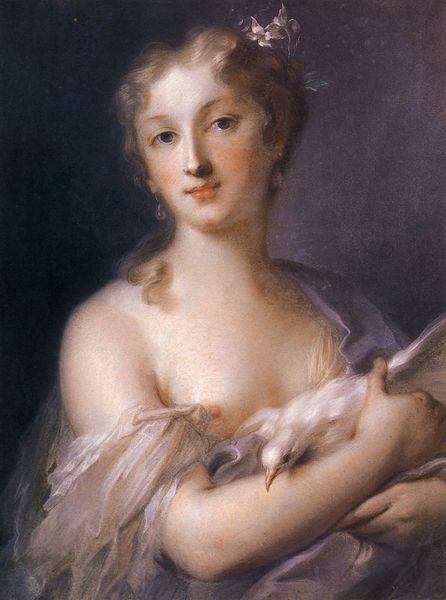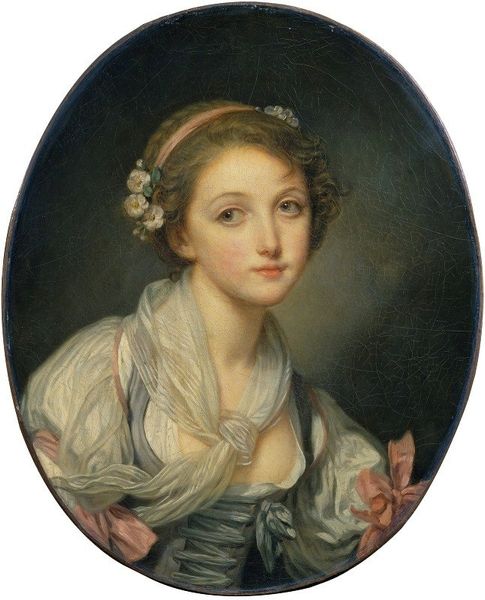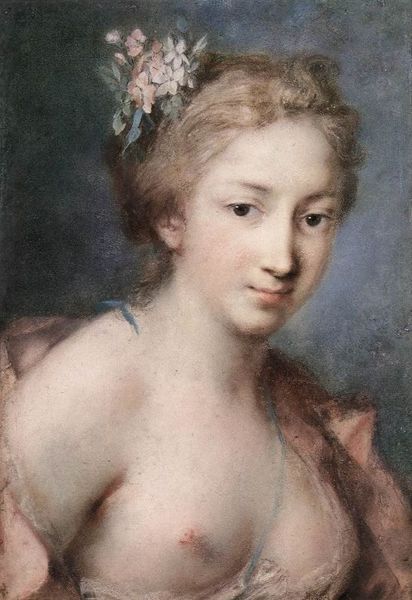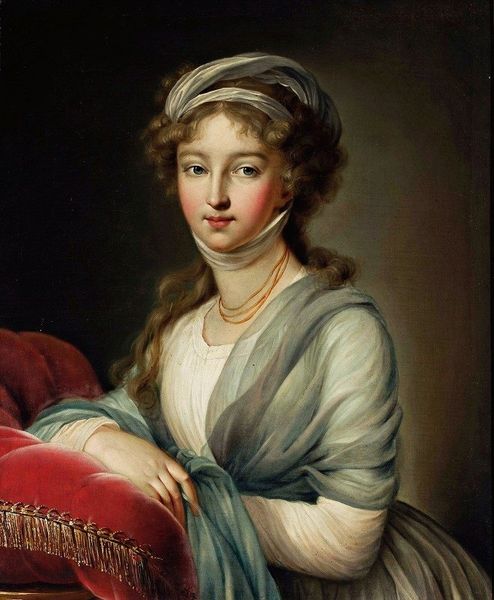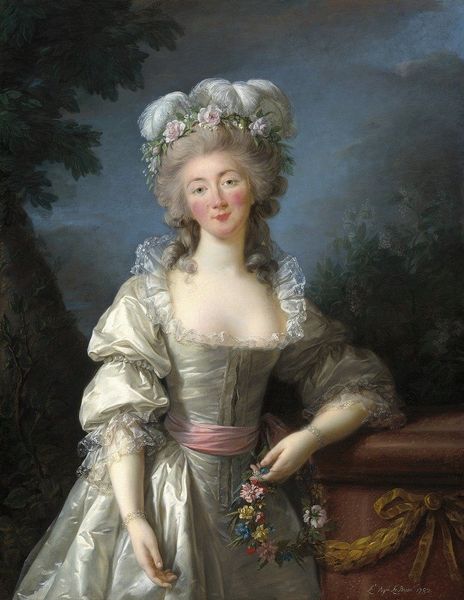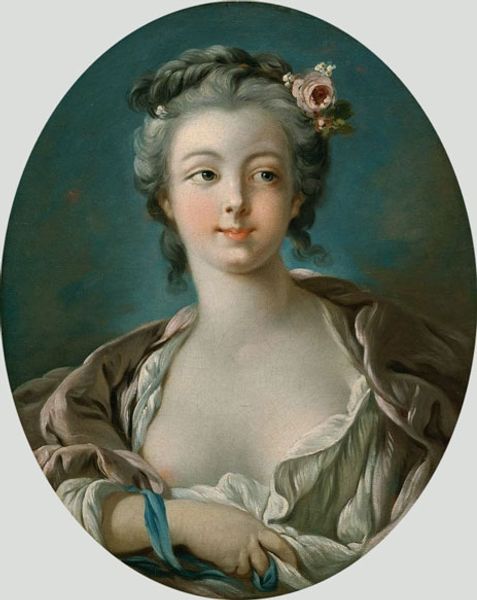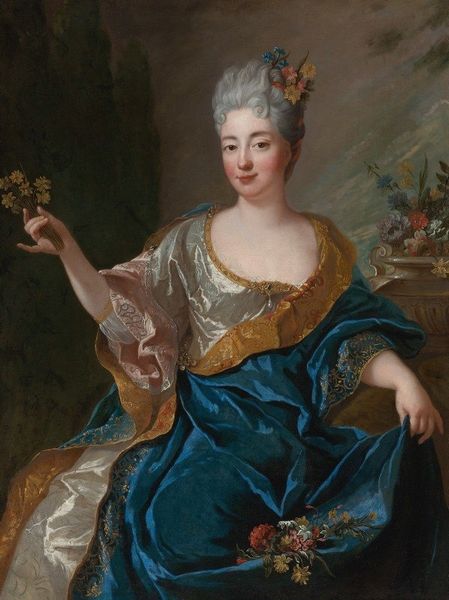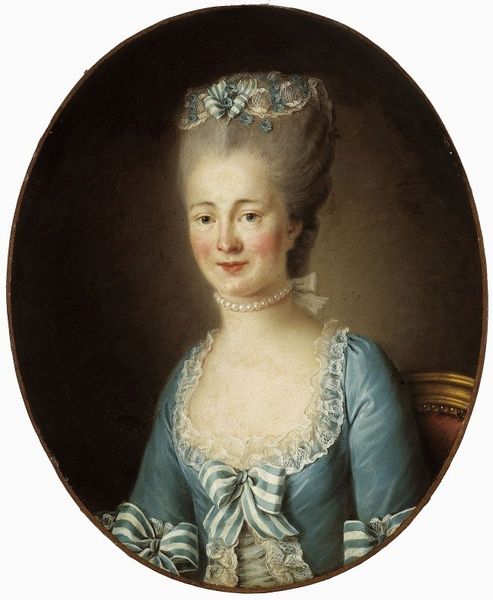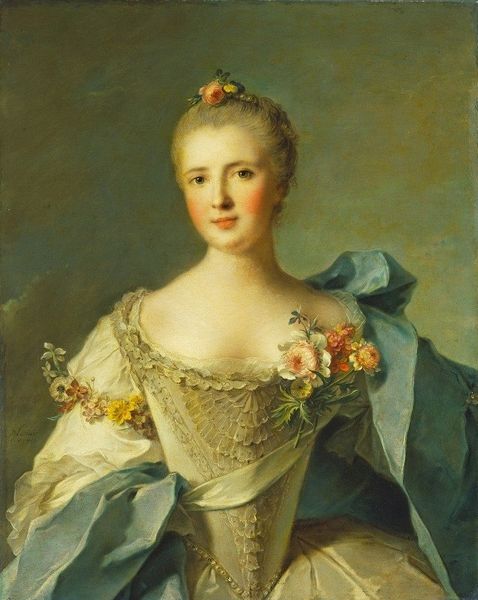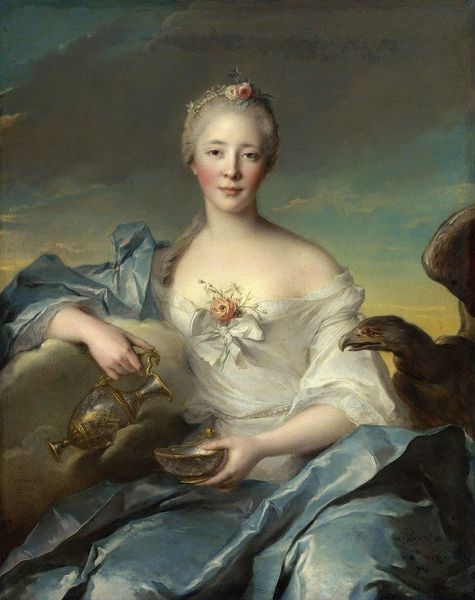
Copyright: Public domain
Curator: This captivating pastel portrait, residing at the Uffizi Gallery in Florence, is entitled "Lady in a Turkish Costume (Felicita Sartori)" by Rosalba Carriera, created around 1728. What strikes you first about it? Editor: The dreaminess of it. The softness of the pastel lends such a gentle air to the woman. It’s like she's emerged from a hazy memory. And is that a mask she's holding? A dramatic flourish for such a delicately rendered face. Curator: Indeed. Carriera, a Venetian artist, was instrumental in popularizing pastel portraiture across Europe. And her choice of costume here isn’t just aesthetic. Dressing in "Turkish" attire was a fashionable trend among European aristocrats – an exotic statement laden with colonial undertones. What does the mask symbolize to you? Editor: Ah, the mask is fascinating. On one level, it plays into the theater of identity, this Rococo love of masquerade. The "Turkish costume" is itself a kind of disguise, a performance of otherness. The mask amplifies that— who are we, truly, under layers of social artifice and colonial fantasy? How does this influence Carriera’s role as a female artist portraying other women in positions of masquerade? Curator: The performance aspect cannot be overstated. Clothing played a vital role in signalling rank and power, but the intentional act of dressing "in costume" highlights how deeply performative identity was and continues to be. It brings into play ideas about cultural appropriation. Carriera herself achieved considerable social capital from portraying members of the aristocracy as engaging in what some scholars call “Orientalist drag”. Editor: The composition enhances that theatricality, doesn't it? The almost claustrophobic close-up, her direct gaze that feels intimate yet guarded... This piece begs us to confront the power dynamics inherent in both representation and identity, how women’s stories can be subsumed by societal expectations that favor particular historical eras. Curator: It seems the enduring fascination with Carriera's portraits comes from that delicate balance. We're drawn in by the aesthetic beauty and technique while grappling with questions about social roleplay and how these performances impact and potentially obscure true identities. It really makes one pause and ponder on these complex historical roles! Editor: Absolutely. I came expecting a pretty picture and I left pondering complex cultural intersections.
Comments
No comments
Be the first to comment and join the conversation on the ultimate creative platform.
